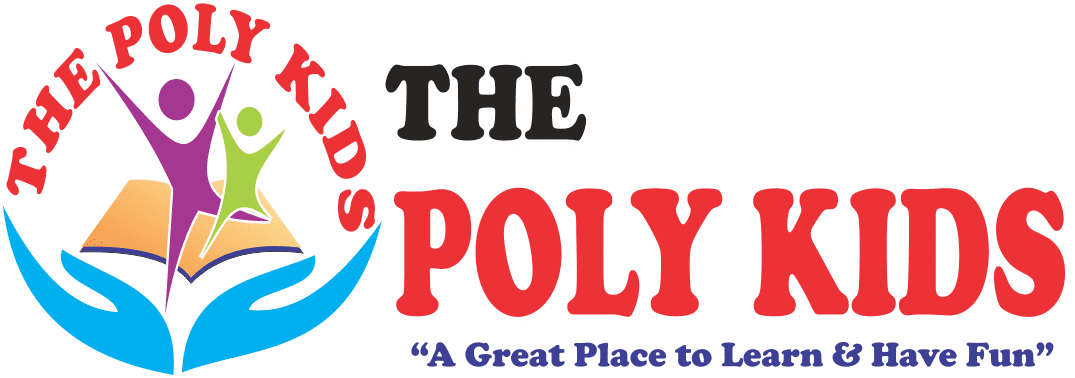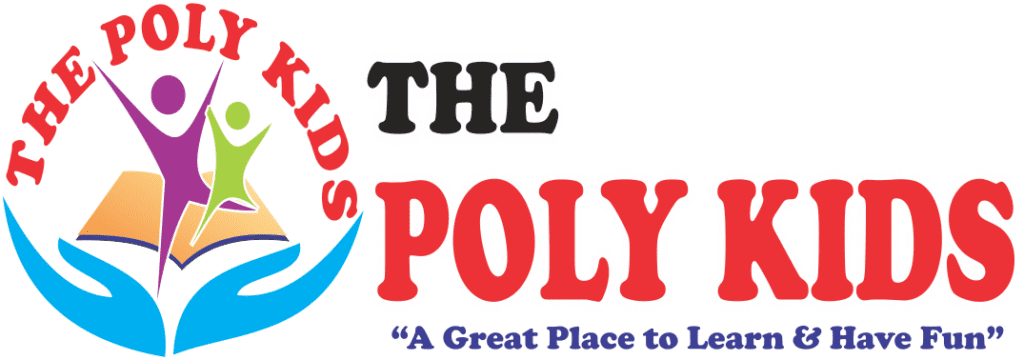🧩 Play-Based Curriculum at The Poly Kids
Introduction: A Joyful Start to Lifelong Learning
At The Poly Kids, we believe that the best learning begins with joy. Children thrive when their curiosity is celebrated, their questions are encouraged, and their imagination leads the way. That’s why our play-based curriculum forms the foundation of everything we do. This method empowers children to explore, create, and understand the world around them in a way that feels natural and exciting. The result? Happy learners who grow with confidence, empathy, and enthusiasm.
What Is a Play-Based Curriculum?
A play-based curriculum is an educational approach where play is the primary medium for learning. It encourages children to explore and engage with their environment through games, storytelling, imaginative activities, and hands-on discovery. Unlike traditional rote learning methods, play-based education recognizes that children learn best when they are emotionally engaged and having fun.
This approach doesn’t ignore structure—it weaves learning outcomes into enjoyable experiences that promote cognitive, emotional, and social development.
Why Poly Kids Chooses Play-Based Learning
The Poly Kids’ commitment to a play-based curriculum comes from years of research, observation, and hands-on experience. Here’s why we believe in it:
🎈 Natural Curiosity
Children are naturally curious. Play helps channel that curiosity into meaningful learning.
🧠 Cognitive Growth
Puzzles, pretend games, and creative play foster problem-solving and critical thinking.
💬 Language Development
Storytelling and role-play games help children improve vocabulary and communication.
👯♀️ Social Skills
Group play teaches sharing, teamwork, and empathy—skills essential for life.
💡 Creativity & Innovation
Unstructured play sparks creativity and encourages out-of-the-box thinking.
At Poly Kids, we transform everyday play into life-shaping learning experiences.
Inside the The Poly Kids Classroom: How We Implement Play-Based Learning
Our play-based curriculum is not just a concept—it’s a carefully crafted learning strategy embedded in every aspect of our daily routine. Here’s how we bring it to life:
1. Theme-Based Learning Zones
Each classroom is divided into interactive zones: a reading corner, pretend-play area, art zone, and sensory exploration tables. These spaces invite children to learn by doing, seeing, and imagining.
2. Guided Play Sessions
Teachers guide children through games that teach numbers, letters, emotions, and problem-solving—without ever feeling like a traditional lesson.
3. Daily Rhythms and Routines
Our day includes structured storytelling, dance and movement, outdoor play, and creative free-play sessions, all aligned with our play-based curriculum.
4. Observation-Driven Progress
Teachers assess development through observation instead of rigid testing. This ensures each child’s unique growth path is supported and celebrated.
Real-World Skills Through Real Play
At The Poly Kids, our play-based curriculum isn’t just about fun—it’s about preparing children for the real world. When kids play “market” or “doctor,” they are:
-
Practicing math by counting money or patients
-
Learning language by talking through problems
-
Developing leadership and negotiation skills
-
Strengthening emotional intelligence and adaptability
These early experiences build a solid foundation for academic success and lifelong learning.
Parents Love the The Poly Kids Approach
Parents quickly notice the difference a play-based curriculum makes. Children return home from school excited, eager to share what they’ve learned—whether it’s a new song, a game, or a story.
Here’s what one parent had to say:
“We chose Poly Kids because of its joyful learning philosophy. Our son started reading and counting naturally just by playing games. But more than that, he’s become a confident and happy child.”
Teacher Role in Play-Based Learning
Teachers at The Poly Kids play a pivotal role. They are not just instructors—they’re facilitators of learning. Through close observation, they:
-
Identify each child’s learning style
-
Adapt activities to meet developmental needs
-
Provide emotional support during challenges
-
Encourage exploration, creativity, and critical thinking
Their ability to blend guidance with freedom makes our play-based curriculum a true success.
A Day in the Life of a The Poly Kid
Here’s how a typical day unfolds under our play-based curriculum:
| Time | Activity | Learning Outcome |
|---|---|---|
| 9:00 AM | Welcome Circle | Social interaction & routine |
| 9:30 AM | Thematic Free Play | Creativity & independence |
| 10:30 AM | Guided Storytime | Listening & language skills |
| 11:00 AM | Outdoor Exploration | Motor skills & nature connection |
| 12:00 PM | Art & Craft Corner | Expression & fine motor control |
| 1:00 PM | Music & Movement | Rhythm, coordination, joy |
| 2:00 PM | Goodbye & Reflection Time | Emotional awareness & closure |
Every moment is an opportunity to learn, connect, and grow.
Why Franchisees Prefer The Poly Kids Model
The success of The Poly Kids isn’t just in the smiles of our students—it’s in the confidence of our franchisees. Our play-based curriculum is easy to implement, highly effective, and loved by communities everywhere. Franchise owners benefit from:
-
A proven, research-backed educational model
-
Complete training and operational support
-
Curriculum updates aligned with modern child psychology
-
High satisfaction rates from parents and staff alike
For franchisees, The Poly Kids model delivers both educational excellence and business success.
Conclusion: Let Learning Be a Celebration
When children learn with joy, they carry that joy with them into every aspect of life. The Poly Kids’ play-based curriculum is more than an academic tool—it’s a celebration of imagination, curiosity, and the natural wonder of childhood.
By making play our foundation, we’re not just preparing children for school—we’re preparing them for life. Confident learners. Creative thinkers. Kind hearts. That’s the Poly Kids promise.


